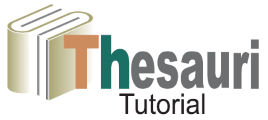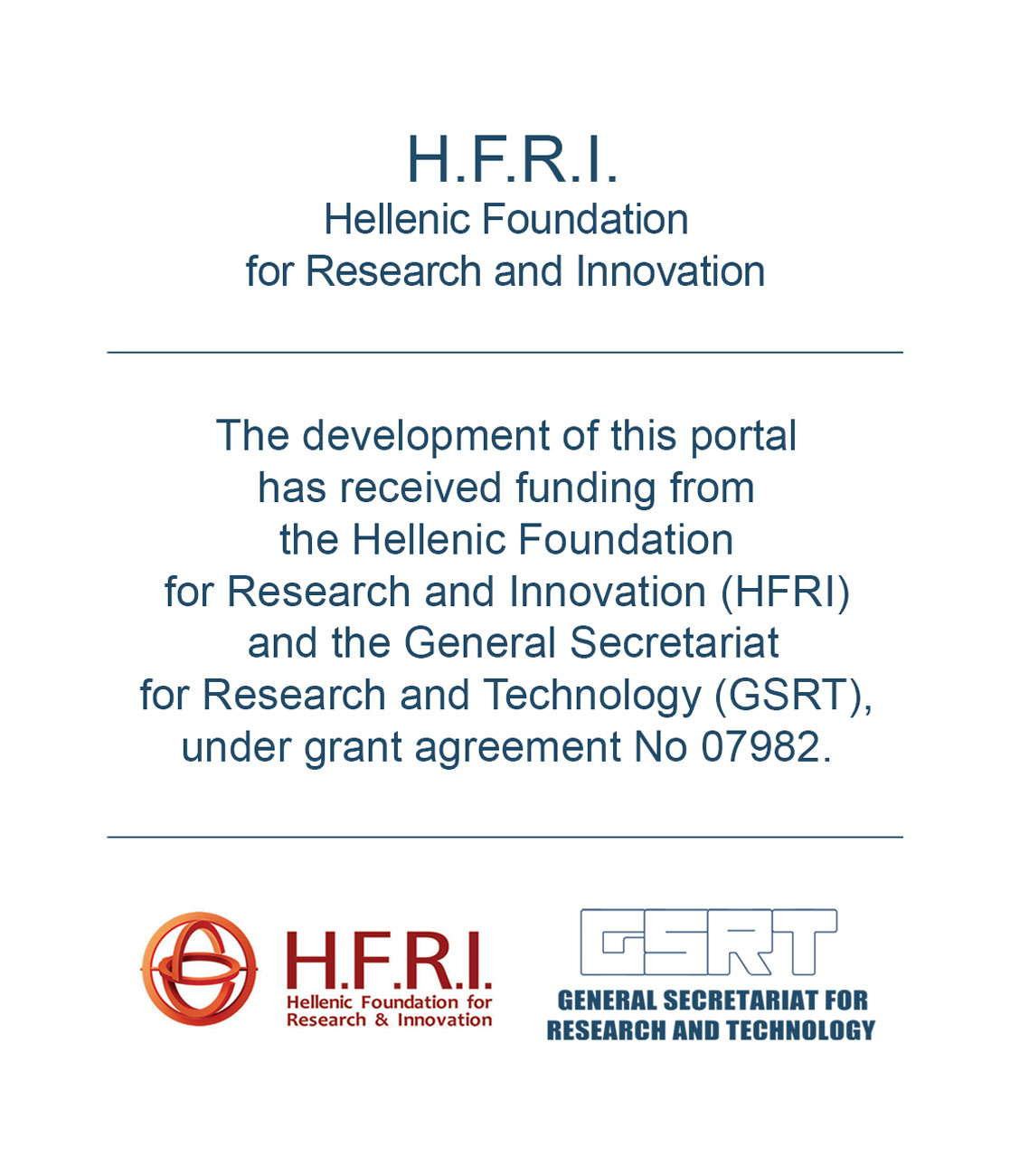Interactive online guide for creating thesauri and connect them into a thesauri federation under a meta-thesaurus.
This is an interactive tutorial on how to create thesauri that will facilitate successful searches in information systems that contain documents or data records. It consists of several training modules with information relating to various thesauri issues. It aims to provide users with information on how to build a thesaurus and contains definitions regarding concepts and terms, as well as methodological principles and guidelines. The intended users of the tutorial include students, researcher, academics, museum, archives and other cultural institution professionals, as well as developers of systems that manage and maintain thesauri.
It was chosen to develop the online thesaurus guide in English in order to maximise its dissemination in the Digital Research Infrastructure for the Arts and Humanities (DARIAH-EU).
Thesauri can be defined as “a controlled and structured vocabulary in which concepts are represented by terms, organized so that relationships between concepts are made explicit” (ISO 25964).
However, originally, thesauri (derived from the Greek “θησαυρός”, meaning ‘treasury’ or ‘treasure house’) were not structured vocabularies but words grouped together in relation to their context. The word was first used by Peter Mark Roget in 1852 in the first edition of his work ‘Thesaurus of English Words and Phrases’. Roget organized words not in alphabetical order, but according to their meaning into six classes. It was intended to be used as a reference tool by writers to help them find synonyms or more precise words and phrases for their work.
A brief description of the thematic sections of the tutorial follows:
- Brief history: This section provides a brief history of thesauri since the word was first used in a literary context in 1852.
- Definition: Thesauri can be defined as “a controlled and structured vocabulary in which concepts are represented by terms, organized so that relationships between concepts are made explicit” (ISO 25964).
- Standards: This section provides an overview of the international thesauri standards.
- Other Knowledge Organization Systems: Knowledge Organization Systems (KOS) are schemes, including thesauri, that are designed for organizing and promoting knowledge and information in order to make their management and retrieval easier.
- Faceted classification: In the time span from 1925 to 1965 S. R. Ranganathan developed a system of library classification, which is called colon classification system. It constitutes the invention of the faceted classification.
- Concepts and terms: Concepts are the main elements of thesauri — Concepts are represented by terms — A term is the verbal form we use to describe a concept.
- Relationships: This section describes the three different relationships used in thesauri: Equivalence relationship, Hierarchical relationship, Associative relationship
- Guidelines on how to create concepts: The aim of the section is to provide a methodology on how to create thesauri concepts for successful searches that will reveal as many of the concepts as possible that are relevant to the research questions posed by domain experts.
- The Simple Knowledge Organization System (SKOS): This system provides a data model and a vocabulary in order to support publication of knowledge organization systems (KOS) on the Web. It was developed by W3C and aims at providing a path for migrating KOSs to a Semantic Web context.
- BackBoneThesaurus (BBT): The BBT proposes the conceptual model for a federation of thesauri, brought together through an open-ended, core set of terms. The BBT federation of thesauri service runs on the BBTalk and BBT-Browser tools.
The glossary provides definitions for the basic concepts used in thesauri.
In the online tutorial, readers are given the opportunity to test their knowledge with a quiz. This quiz consists of graded questions that test the user’s knowledge of the treasures. In addition, the administrators of the online guide have the supervision of the quizzes’ results, in order to perceive possible difficulties of the users and to improve the modules.

